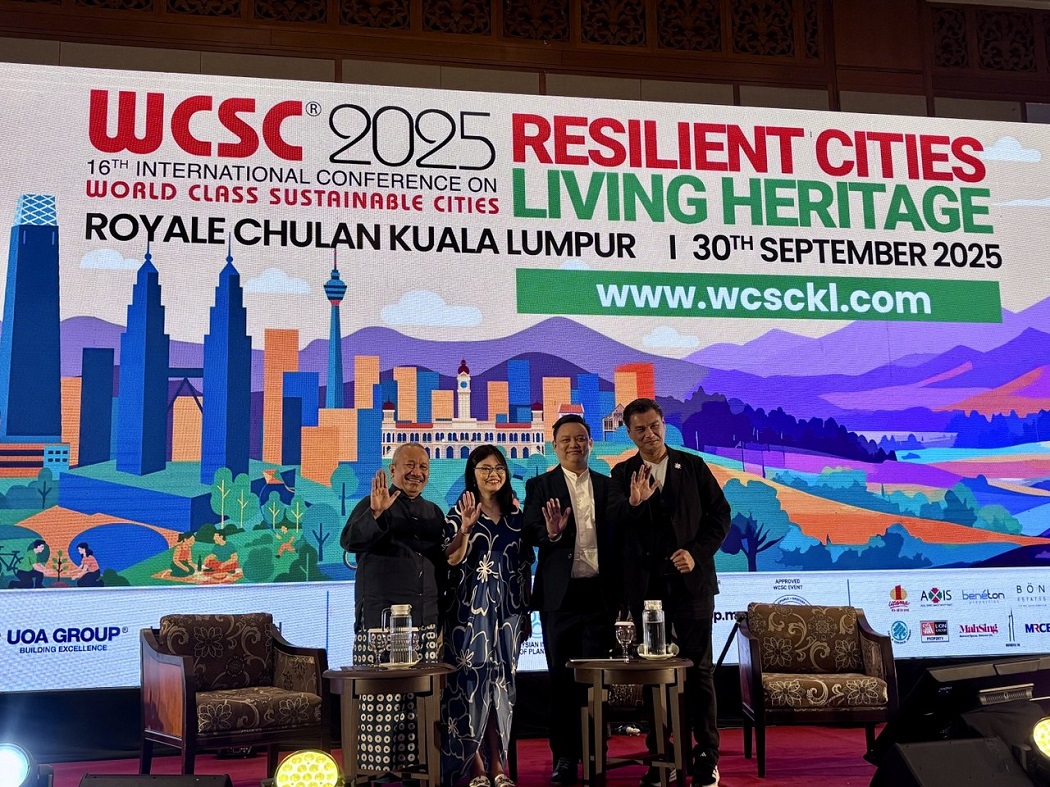WCSC 2025: Culture key to thriving cities, not just socially, but economically

- “Without people, there is no reason for businesses to invest, as culture is not just about tourism; it’s about identity and longevity.”
KUALA LUMPUR (Oct 1): Many stakeholders and potential clients still view culture as a “nice to have”—only worth investing in after basic needs are met.
Urban policy advisory firm Think City director Dr Ceelia Leong stressed that culture is what makes people human and gives cities their identity. Without it, a place feels empty and lacks personality.
“Kuala Lumpur risks being just a workday city. By night, it becomes quiet, with little to keep people engaged. To compete globally, it must be more than an economic hub.
Read also
WCSC 2025 to tackle urban identity, climate and smart tech
WCSC 2025: RM700m allocated to revitalise seven national landmarks, says Nga
WCSC 2025: Plant trees, save cities
WCSC 2025: Technology, data playing greater roles in shaping cities
“It has to be a place where people can live, enjoy life, and experience more than just work,” she said during the dialogue session “Culture as Catalyst: Revitalising Urban Identity and Community Life” at the 16th International Conference on World Class Sustainable Cities (WCSC) 2025 held here yesterday.
She added that cities with higher international rankings succeed because they balance economic opportunities with culture and quality of life.
“Prioritising culture creates reasons for people to stay, which then attracts talents, residents, demand, and ultimately businesses.
“Without people, there is no reason for businesses to invest, as culture is not just about tourism; it’s about identity and longevity,” she explained.
Spending wisely: Building sustainable cultural industries
Malaysia’s challenge is not the lack of money but how it is spent, said Joe Sidek, managing director of Joe Sidek Productions Sdn Bhd, an events management company specialising in arts, culture and heritage.
“It’s not that we don’t have funds; it’s that we don’t spend them wisely. For example, millions have been spent on events for decades, but what is the lasting impact after 20 years? We keep funding one-off events rather than building sustainable cultural industries,” he said.
He warned that when funding is cut, performing arts and cultural acts risk dying out. By contrast, small village festivals around the world have thrived when supported by communities.
“In Malaysia, we’ve been spoiled. People expect free shows and don’t want to pay. In Indonesia, audiences pay to see culture, and that ensures sustainability.
“So it’s not about money alone; it’s about building appreciation and value,” he said.
Collaboration and community: Preserving identity for lasting impact
Thailand Creative Economy Agency director Karin Kungwankitti said the key to successful projects in Thailand is collaboration.
“The key is bringing together everyone in the private sector, government, academia, and local communities—under a shared goal.
“Money is important, but what matters more is imagining the kind of city we want to live in. Once there is a common direction, funding and support will follow,” he said.
He added that preserving identity and collective memory is crucial.
“Every district has its own stories, skills, and traditions. Developers or city planners need to engage communities, archive their experiences, and keep that memory alive.
“Over time, this becomes the community’s foundation, generating economic, social, and tourism value,” he said.
WCSC 2025, themed “Resilient Cities, Living Heritage”, is organised by the Malaysian Institute of Planners (MIP), Real Estate and Housing Developers’ Association (Rehda) Malaysia and the Malaysian Institute of Architects (PAM), in collaboration with KL City Hall (DBKL) and EdgeProp as media partner.
The conference was officiated by Housing and Local Government Minister Nga Kor Ming, with KL Mayor Datuk Seri Maimunah Mohd Sharif also in attendance.
It focused on three areas: culture as a catalyst in revitalising urban identity, climate adaptation and nature-based solutions, and smart technologies for inclusive urban futures.
As Penang girds itself towards the last lap of its Penang2030 vision, check out how the residential segment is keeping pace in EdgeProp’s special report: PENANG Investing Towards 2030.
Never miss out
Sign up to get breaking news, unique insights, event invites and more from EdgeProp.
Latest publications
Malaysia's Most
Loved Property App
The only property app you need. More than 200,000 sale/rent listings and daily property news.
